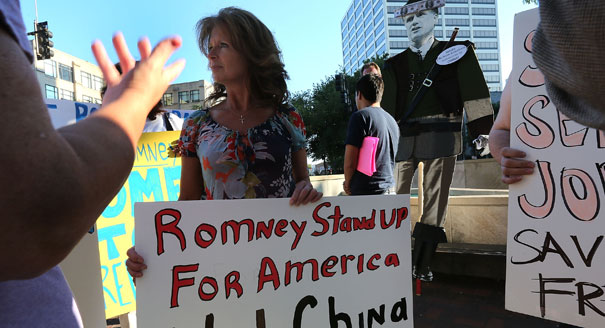Registration
Thank you!
You will receive an email confirming your registration.
The degree of public opinion’s influence on the actions of a country’s leadership differs between nations and is at the center of a critical debate on public policy. Public opinion plays a strong though different role in the foreign policymaking of both China and the United States. Carnegie-Tsinghua’s Zhang Chuanjie hosted a roundtable discussion on the role of public opinion in shaping the U.S-China bilateral relationship.
How to Measure the Influence of Public Opinion
Michael Oppenheimer, an associate clinical professor at New York University, explained that when he studied public opinion’s impact on Beijing’s foreign policymaking, he asked a number of critical questions, including:
- What is the relevance of public opinion to Chinese foreign policy?
- How autonomous a factor in foreign policy is public opinion?
- If public opinion shapes foreign policy, how does it do so?
- What is the context of public opinion?
- What do Chinese people think and does this vary by region, income, occupation, age, gender, and/or ethnicity?
- How passionate are people about foreign policy?
- What is the level of globalization of public opinion?
- Are people well informed and if they are superficially informed, how volatile are their opinions?
- Does public opinion vary by issue?
- What is public opinion in China regarding the United Sates?
- How do people view the U.S. rebalancing to Asia and the Pacific?
- How do they view U.S. actions in Asia?
- Is U.S. policy in the region seen as containment or encirclement? Will it limit China’s rise?
- How does the Chinese public view China’s rise?
- How should Beijing use its new power?
The State of Chinese Public Opinion and its Future
- Public Opinion Changes Quickly: Li Wei, an assistant professor at Renmin University, stated that public opinion often sees rapid change. For example, Li said, the Chinese in the 1960s viewed the United States with contempt. A decade later, after normalization, the United States was celebrated. Zhao added that this change in public opinion was largely due to government manipulation of the public.
- Public Focused on Exchange Rate Issues: Li explained that a large part of negative Chinese public opinion toward the United States is due to U.S. pressure for the appreciation of the Chinese currency. On this issue, Li pointed out that the divide between the government and public is clear. Zhang explained that while policymakers on both sides agree that appreciating the renmenbi is mutually beneficial, nationalist and populist views drive public opinion to be negative toward renmenbi appreciation.
- Role of New Media in Public Opinion: Chris Janiec, a lecturer at China Foreign Affairs University, discussed the potential impact social media may have on public opinion in China in the future. He explained that social media has brought new primary actors into the process of building up public opinion. Online forums, he added, can also be drivers for building up nationalism.
